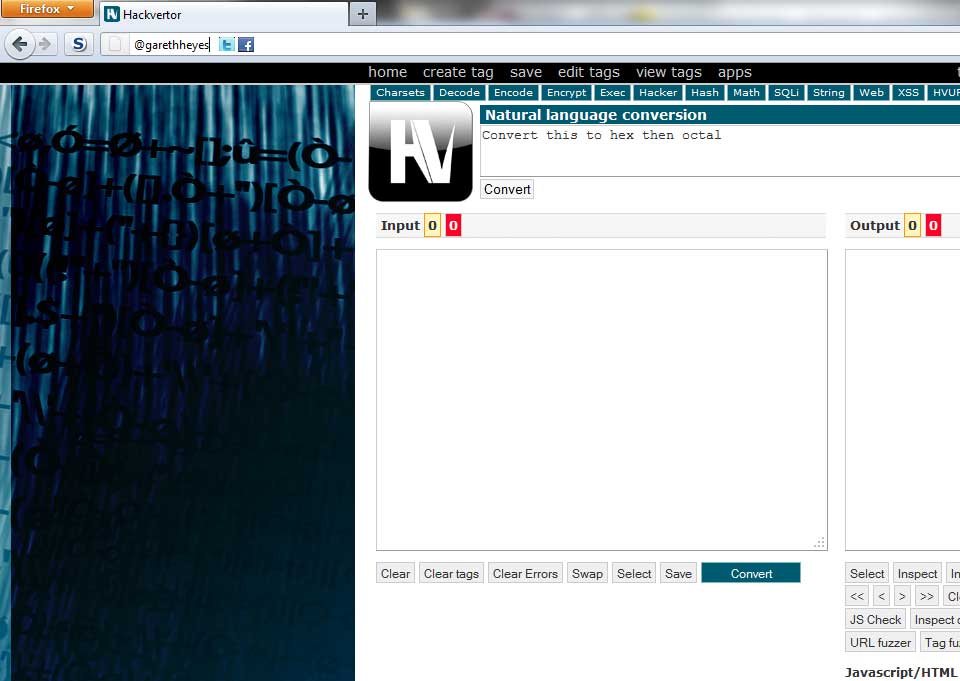We need @ urls
Monday, 17 October 2011
Just thought I’d post the obvious and state we need @ urls. At the moment when using @ the browser assumes you want to use ftp on the site in question but I propose when using a url that begins with @ it should default to your chosen social network. @uid would resolve to twitter.com/uid or facebook.com/uid. Doesn’t that make sense? Look at the adverts on TV when they say follow us on twitter for example @ourid doesn’t really make sense to the average user does it? But if you could type that in directly in the browser and it could prompt you to follow the user then suddenly it’s much more friendly and usable.
How it could work
The @ url would default to your chosen social network but display icons next to the typed in uid which would allow you to choose facebook, twitter or a different social network. If you hit return it would use your default.

The social network could configure the appearance of the icon as well as the user id url to be sent to. Something like:
<meta name="social network" content="text='Add twitter to your social networks?',icon='https://twitter.com/images/someicon.png',url='https://twitter.com/%s'" />
No. 1 — October 17th, 2011 at 11:31 am
While I agree with you in principle, doing so could unfairly legitimise one service over another. Aside from obvious reasons of current dominance, why should Twitter be granted “@” addresses in perpetuity? This is probably more suited to a browser plugin than actual URLs imo.
No. 2 — October 17th, 2011 at 11:45 am
@SG
I totally agree that’s why I said in the post you should be able to choose your social network default. This choice could be initiated by a meta header on the social network and a prompt or the browser could ask the first time you access a @ url or maybe ask which social network do you want to be redirected to.
No. 3 — October 17th, 2011 at 12:39 pm
Sorry, I mis-read that part of the post. It would indeed be a great addition for browsers to allow (and recommend) some user-selected URLs. For a while I did use a Safari plugin (Saft) that pretty much enabled me to do just that.
No. 4 — October 17th, 2011 at 1:24 pm
@SG
There are spamming and phishing issues since if you register a uid on social network “A” but not on “B” then a spammer could spoof “A” so I think a prompt with a choice of social network should be a requirement. Either that or a double @ address for example @uid@twitter.com although that looks pretty confusing so I prefer a prompt.
No. 5 — October 17th, 2011 at 4:04 pm
Could cause ambiguity problems too as the @ symbol is already used in the URL schema to delimit authentication details from domain names (although not commonly used).
No. 6 — October 17th, 2011 at 5:33 pm
@Owen
Yeah you’re right, a @ url at the beginning of the url and with a prompt to ask which social network your require is probably the best bet.
No. 7 — October 18th, 2011 at 12:40 am
I don’t think its very wise to go messing with a spec for a fad..
Get Flock or the firefox/chrome extension that lets you create aliases you should be able to bind @* to whatever social network you want.
No. 8 — October 18th, 2011 at 10:02 am
Nah, I don’t think this is a good idea. If you’re providing a @user link, you expect the user to reach *your* favorite social network, not *his*. So without a central identity repository it wouldn’t work with offline media. Maybe something more like e-mail addresses? id:user@twitter.com? but thats no different from twitter.com/user. I see no gain
No. 9 — October 18th, 2011 at 10:06 am
@Maciej
I think a prompt when you enter a @uid that would ask which social network you require. It could also have shortcuts like “follow” etc.
No. 10 — October 18th, 2011 at 5:10 pm
I suggest a revised version of this idea that will make it plausible:
@ urls look like this: service_name@uid … Examples: fb@userguy, tw@dudefella, bing@brodude
You could register the service_name through ICANN.
No. 11 — October 19th, 2011 at 3:06 am
I think it’s cool.
No. 12 — October 19th, 2011 at 9:59 am
Maybe something like opensearch? An XML describing a social network. Not only URL, Icon and description, but also ways to see user profile (by username), add/follow him, etc.